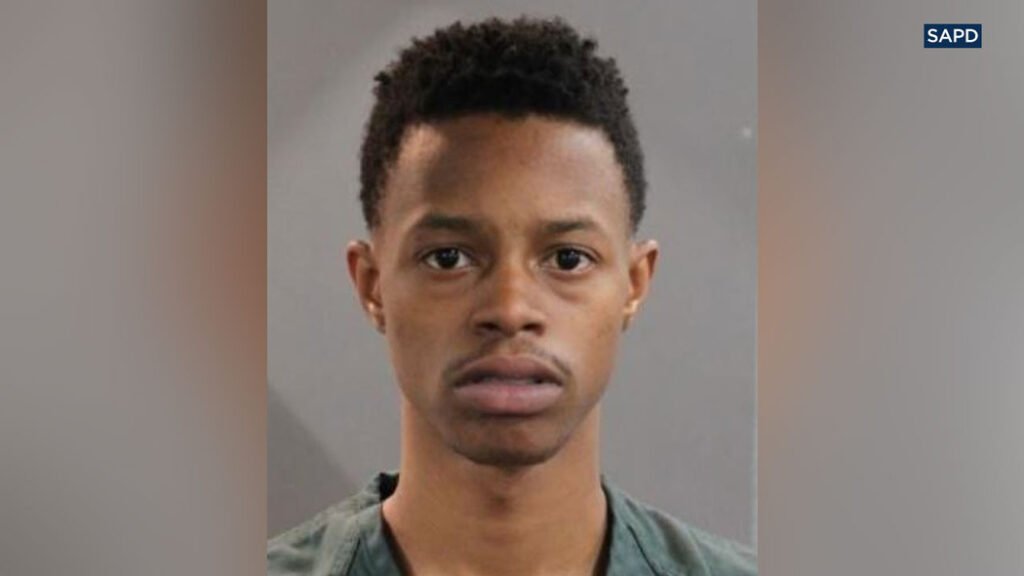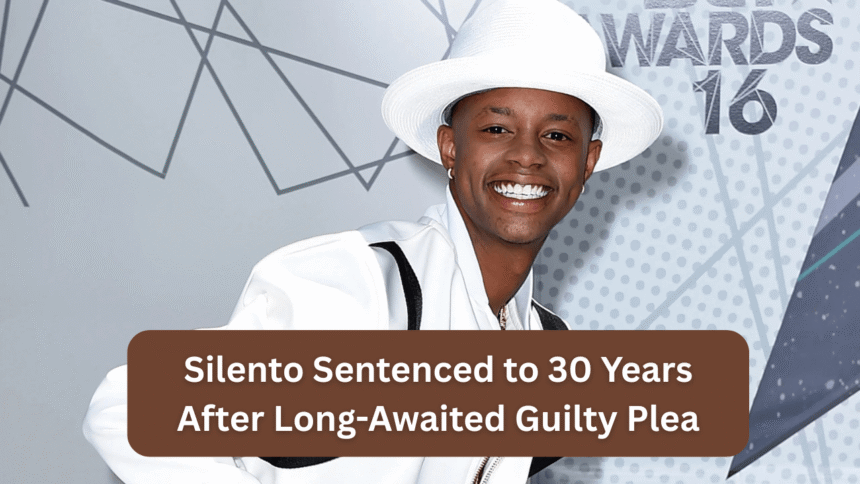Silento, the rapper best known for his 2015 viral hit “Watch Me (Whip/Nae Nae),” has been sentenced to 30 years in prison after pleading guilty to the killing of his cousin in 2021. The courtroom in DeKalb County, Georgia, was tense as Silento entered a guilty plea to the charge of voluntary manslaughter. His admission brings closure to a three-year case that shocked both fans and the music industry.
This marks the tragic turning point in the once-promising career of Silento. His name, once associated with chart-topping success and youth dance culture, now appears in headlines for a very different reason. Silento, born Richard Lamar Hawk, accepted a plea deal on the grounds of mental illness, which likely helped him avoid a murder conviction and a potential life sentence.
A Shocking Case That Rocked the Industry

The incident that led to Silento’s conviction took place in January 2021. According to prosecutors, he drove to a residence in Panthersville, a suburb of Atlanta, where he fatally shot his cousin, Frederick Rooks, multiple times. Investigators found video footage linking Silento to the scene and later arrested him. For months, he remained in jail without bond as his legal team built a defense centered on his mental health.
The initial charge was malice murder, but through negotiations and evaluations, a plea of guilty but mentally ill was ultimately accepted. That allowed prosecutors and defense attorneys to reach a compromise, ensuring Silento would serve significant time while also receiving treatment during his incarceration.
Silento’s 30-year sentence includes a provision for mental health care within the prison system. Under Georgia law, someone found guilty but mentally ill can receive treatment in a psychiatric facility before or during their sentence, depending on their condition.
Rise to Fame: The Fall No One Expected
Silento burst onto the music scene in 2015 when he was just 17 years old. His debut single, “Watch Me (Whip/Nae Nae),” exploded on YouTube and social media, sparking a dance phenomenon among teens and celebrities. Within weeks, he became a household name and performed at high-profile events across the country. For a moment, Silento was one of the brightest young stars in music.
But behind the scenes, his life was spiraling. Silento struggled with fame, money, and mental health challenges that few people knew about. In the years following his hit, he was involved in several run-ins with the law, including arrests for domestic violence, gun possession, and erratic behavior. The public saw only headlines, but close friends and family reportedly witnessed a young man battling inner demons.
A Courtroom Full of Emotion and Regret

The sentencing hearing for Silento was emotional and deeply moving. Members of both the Rooks and Hawk families were present. While some asked for justice, others pleaded for understanding, highlighting Silento’s long history of mental health struggles. His attorney described a young man failed by the systems meant to protect him.
Silento addressed the court directly, expressing deep remorse for his actions. His voice shook as he apologized to his cousin’s family and acknowledged the pain he caused. “I wish I could go back and change everything,” he said. “I take full responsibility for what I did. I loved Fred like a brother.”
The judge, while sympathetic, emphasized the severity of the crime. She acknowledged Silento’s mental illness but stated that the punishment must reflect the irreversible loss of life. The courtroom sat in silence as she handed down the 30-year sentence.
The Role of Mental Illness in Silento’s Downfall
Silento’s plea of “guilty but mentally ill” brings new focus to the intersection of mental health and criminal justice. His attorneys submitted multiple psychiatric evaluations diagnosing him with bipolar disorder and schizophrenia. These reports painted a picture of a young man in crisis, who had repeatedly sought help but was not properly supported.
Family members testified that Silento had episodes of paranoia and confusion in the months leading up to the shooting. He reportedly believed he was being followed and was struggling to separate reality from delusion. Despite these signs, he was not hospitalized, and his condition went largely untreated.
Mental health experts stress that more needs to be done to support artists, especially young ones who experience sudden fame. Silento’s case highlights how untreated mental illness can escalate, not only damaging the individual but leading to tragedy for others.
You may also like: Kevin Durant at the Center of NBA Trade Buzz
Fans React to Silento’s Sentence
Social media erupted after news broke of Silento’s sentencing. Many fans expressed sadness, remembering the joy his music once brought to millions. Others focused on the loss of his cousin and the grief that the family continues to endure. The emotional conflict was evident online, where people struggled to reconcile Silento’s public persona with the violent crime he committed.
Several fellow artists posted tributes and urged the public to take mental health seriously. “This should be a wake-up call,” one rapper wrote. “Fame doesn’t fix pain. Get help before it’s too late.”
Some fans noted the irony that someone who once united the world through dance is now imprisoned for violence. The duality of Silento’s journey has left many reflecting on the pressures of fame and the systems that fail to protect the vulnerable.
What Comes Next for Silento
Now facing decades behind bars, Silento will begin his sentence in a Georgia state prison equipped to handle inmates with mental illness. His legal team says they are committed to ensuring he receives consistent care and will explore parole eligibility when the time comes.
Silento may be eligible for parole after serving a significant portion of his sentence, but legal experts say that will depend on his behavior, treatment progress, and the input of the victim’s family.
For now, Silento’s story serves as a sobering reminder of how quickly life can change. The courtroom resolution may offer closure, but the scars of this tragedy will remain with everyone involved.
A Legacy Tainted by Violence
Silento’s name, once celebrated on stage and in school dances, is now etched into the records of Georgia’s criminal justice system. His 30-year sentence not only marks the end of a high-profile case but also symbolizes the tragic decline of a young talent with a once-bright future.
Silento will forever be linked to both viral fame and fatal consequences. As fans and the public reflect on his story, one question lingers: Could this tragedy have been prevented with better mental health intervention?

